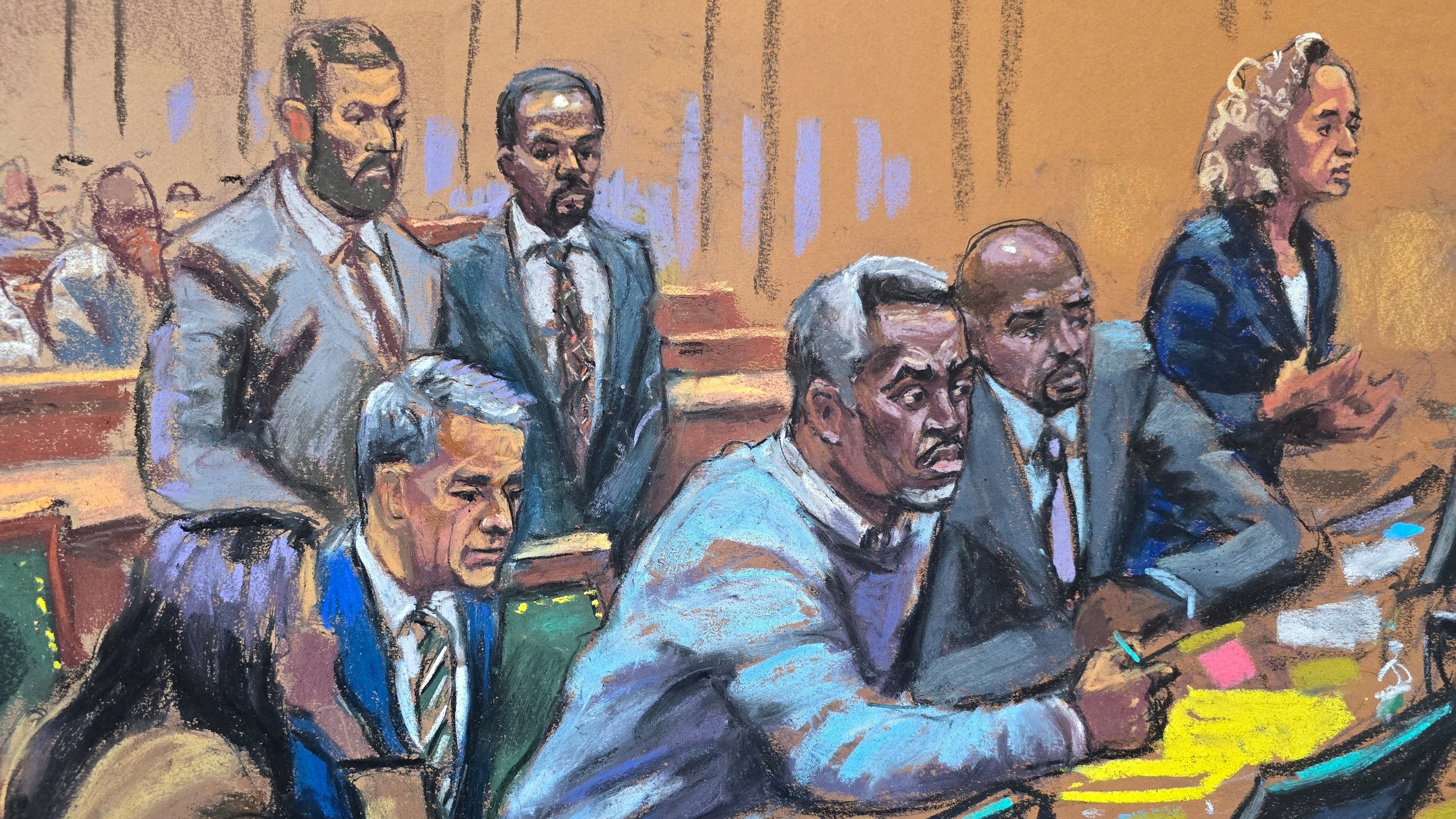
Sean "Diddy" Combs attends a charge conference with his defense lawyers Nicole Westmoreland, Brian Steel, Xavier R. Donaldson and Alexandra Shapiro
Credit: Reuters photo
New York: Sean "Diddy" Combs used "violence and fear" to lead a criminal enterprise that helped him subject two of his former girlfriends to sex trafficking, a US prosecutor said on Thursday in her closing argument at the music mogul's trial.
Combs, a former billionaire known for elevating hip-hop in American culture, has pleaded not guilty to racketeering conspiracy and two counts each of sex trafficking and transportation to engage in prostitution.
If convicted on all counts, the Bad Boy Records founder faces a minimum 15-year prison term and could be sentenced to life behind bars.
Over more than six weeks of testimony in Manhattan federal court, jurors heard two of Combs' former girlfriends testify that they took part in days-long, drug-fueled sex parties sometimes called "Freak Offs" with male sex workers while Combs watched, masturbated, and sometimes filmed.
The jury saw hotel surveillance footage of Combs beating one of the women in a hallway, and heard Combs' employees describe setting up hotel rooms and buying drugs for the performances.
"The defendant used power, violence and fear to get what he wanted," prosecutor Christy Slavik told jurors in her address. "He thought that his fame, wealth and power put him above the law."
Both alleged victims - the rhythm and blues singer Casandra "Cassie" Ventura and a woman known in court by the pseudonym Jane - said Combs also threatened to cut off financial support or leak sex tapes when they complained about their treatment.
Combs' defense lawyers acknowledge that Combs was occasionally violent in domestic relationships, but have argued that his conduct did not amount to sex trafficking because the sex acts described by prosecutors were consensual. They are expected to deliver their closing argument on Friday.
The jury is expected to start deliberations either late on Friday or on Monday. Combs, a rapper and entrepreneur known for turning artists like Notorious B.I.G. and Usher into stars, has been held in federal lockup in Brooklyn since his September 2024 arrest.
Ventura and Jane both testified that they at times took part in the performances because they loved Combs and wanted to make him happy, and defense lawyers have argued he had no way of knowing that they were not participating willingly.
Dueling Narratives
During cross-examination of both women, defense lawyers highlighted tender and sexually explicit text messages that Ventura and Jane sent Combs over the course of their years-long relationships with him.
The defense opted not to call witnesses of their own, but during a 30-minute defense case on Tuesday displayed additional messages between Ventura and Combs, including one in which she pledged to "be your little freak."
Combs did not testify. Defendants in U.S. criminal cases are not required to present evidence, and judges instruct juries not to hold a refusal to testify against defendants. To win a guilty verdict, prosecutors must prove their cases beyond a reasonable doubt.
Legal experts said the jury would need to consider the prosecution's evidence of Combs' abuse against the defense's evidence that the women consented to the performances in at least some instances. The 12-member jury must be unanimous to convict Combs on any of the counts.
"The question is which narrative is going to hold more weight," said Heather Cucolo, a professor at New York Law School.
Slavik argued that Combs is guilty of racketeering conspiracy because his employees enabled and concealed his behavior.
"He used his inner circle, his money and his influence to cover up his crimes," Slavik said.
Combs' lawyers have argued there was no conspiracy in part because his employees were not aware of anything improper about the sexual performances, and that any drugs they procured for their boss were for his personal use.